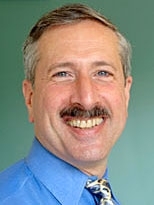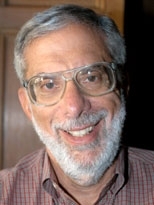Focusing heavily on potential changes in math and science requirements, around 200 faculty members convened at a special meeting Nov. 29 to discuss proposed changes in the General Institute Requirements (GIRs) contained in a report from the Task Force on the Undergraduate Educational Commons.
The faculty passed a motion to delay any votes on the proposal until at least February.
The Nov. 29 meeting was the faculty's third opportunity to discuss the task force's proposal, which constitutes the most dramatic changes to the MIT core curriculum in the last 50 years.
The recommendations, which include new requirements in science, mathematics and engineering as well as in the humanities, arts and social sciences, also promote an increased role for international educational experiences for undergraduates.
Steven Lerman, professor of civil and environmental engineering and chair of the faculty, said that this "open comment" period would continue between faculty and the Committee on the Undergraduate Program (CUP). The discussion also will be resumed at the February faculty meeting. CUP, he said, "will eventually digest the comments and come back with recommendations. Any proposals to change the GIRs will then require a debate and vote by the faculty before being approved." Implementation of any changes would be undertaken at the departmental level.
Each student will choose one course from five of either five or six areas of focus (e.g., chemical sciences, computation and engineering, life sciences, mathematics, physical sciences, and project-based experiences), plus two semesters of calculus and one of physics.
Each focus area will have several different options. For example, electricity and magnetism (Course 8.02) and a new geophysics class have been put forward as possible equal selections from the physical sciences focus area. While many majors would still require 8.02, not all students would be required to take it.
Wednesday's discussion centered on issues such as whether giving freshmen more choices would destroy the shared experience that has revolved around a core set of classes; whether not requiring 8.02 of all students will weaken some students' knowledge of basic physics; whether too much choice will lead to some students neglecting courses until it's too late to comfortably fit them in if they decide to switch majors; and how already over-taxed MIT faculty will be able to provide the additional advising necessary to guide freshmen through the expanded new choices.
David Mindell of the Program in Science, Technology and Society, a member of the task force, said the goal was not to impose new requirements but to keep the number of GIRs the same or smaller "to allow students to do the things they want to do and to put flexibility and accountability in the hands of students."
Mindell said that 66 faculty, or roughly 6 percent, are involved in freshman advising. "The question on the table is how much to relegate freshman advising into a one-size-fits-all set of rules and how much to take it on ourselves to advise the students to pursue individual educational paths," he said.
Robert J. Silbey, dean of science and chair of the curriculum task force, said one example that points to the need for the curriculum to be updated is that students can graduate from MIT in 2007 without having been exposed to a number of important fundamental topics, for example, quantum mechanics. "I think that's a shame," he said.
Several faculty members expressed concern that MIT's strong foundation in science and engineering would lose its punch. Thomas J. Greytak, professor of physics, said that maintaining MIT's high level of rigor would require continued vigilance.
Patrick A. Winston, Ford Professor of Engineering in the Department of Electrical Engineering and Computer Science, said that as a member of the Class of 1965, he and his classmates recalled a specific tricky exam question 44 years after the fact. "We're losing a common experience and we should separate ourselves from that shared common experience with great reluctance. Soon there will be nothing people have in common," he said.
Winston and others said the proposed changes didn't feel "bold enough." Adding a year or more to the typical four-year undergraduate experience, moving to a system of more than two semesters, and teaching physics, chemistry and humanities as an integrated subject would have been bolder moves, some said.
Peter H. Fisher, professor of physics, said he has talked informally with students about the proposed changes, and that he has "a lot of confidence that no matter how much we screw this up, they will do just fine. A lot of this, when you get right down to it, is tinkering in the margins. These students are really bright and they will figure it out."
A version of this article appeared in MIT Tech Talk on December 6, 2006 (download PDF).







